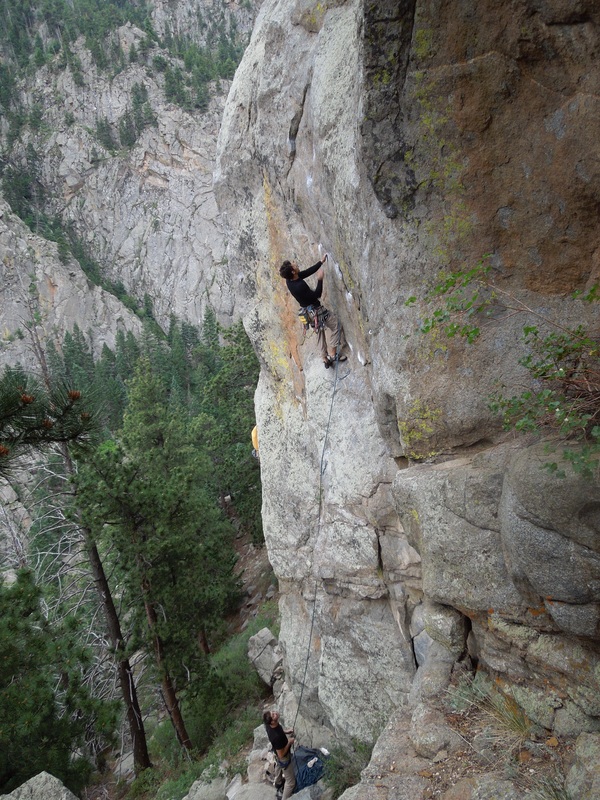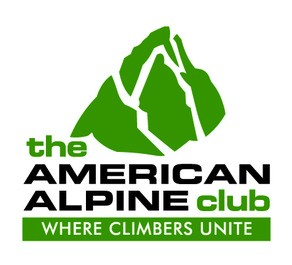A Climber Turned Citizen Scientist’s Story of Adventure and Data Collection
In an age where awareness of climate change exists but little is understood, I had always accepted the science behind the debate. What I lacked was an answer to one basic question: What can I do about it? Gearing up and heading into the wilderness wasn’t healing the ecosystems I frequent, and escaping those around me for solitude certainly wasn’t raising
awareness. I needed a way to contribute something, anything, to the worthy and noble cause of understanding climate change to fight ecosystem degradation. Fortunately, advocacy exists in the form of passionate grassroots organizations who are mobilizing people like me to transform recreational travel into purposeful volunteer work.
The deafening rivers and babbling brooks that make life possible have no voice of their own. The mountains whose defenses we try to exploit to gain their summits cannot fight for themselves. The planet’s animal and insect populations who vastly outnumber us stand no chance unless we make an effort to understand them. This is where Adventurers and Scientists for Conservation plays into the equation. Standing at the forefront of citizen science, ASC connects hikers, climbers and paddlers with scientists hungry for data in the places these athletes love to play. Often lacking the technical outdoor skills, funding or time to reach the remote areas they are attempting to study, these scientists greatly need us to assist them, just as we need them to help protect the areas we treasure.
providing the tools and sense of community necessary for participants to assemble and have a voice in the high-stakes game of access. As an avid climber, I am a member of the American Alpine Club. Going beyond providing rescue insurance and discounts for inevitable gear replacements, the AAC has done big things with the Access Fund and has given support to numerous climbers pushing the limits of the sport.
While planning for a three month climbing trip this past summer, I was searching for ways to take the journey beyond cragging. After taking advice from fellow climbers and joining the AAC, I wanted to find a way to contribute to something beyond the trip. With impeccable timing at the suggestion of a West Coast river rat, I discovered ASC. Through ASC, we who appear selfish are transformed into selfless servants and ambassadors of the outdoors, forming an army who marches to the beat of higher calling. This is my ASC story, one which I hope to continue writing through the course of many adventures.
My climbing partner and I were riding high on our trip, halfway through visiting America’s most coveted crags. The Red River Gorge, Shelf Road, Boulder Canyon, Wild Iris, Yosemite, Smith Rock, and City of Rocks all got ticked off on our classic journey. Fresh off some adventure climbing in the Bitterroots of Montana, we needed to give our tendons a rest and transfer the workload into our packs and onto our legs. So began a two day, 35 mile backpacking trip in Montana’s iconic Glacier National Park.
We had already put sixteen and a half miles behind us the first day as we scrambled for the backcountry campground of Boulder Pass in the northwestern corner of the park. We cleared the final stretch and caught sight of the campground down in the saddle of Boulder Pass, situated at 7,100 feet with awe-inspiring views of Kintla Peak and Agassiz Glacier. As we settled in the campsite, I explored a small snowmelt pond and a talus field, spotting something I had been searching for since we left our home in West Virginia several long months ago, apika. A the smallest member of the rabbit family notoriously sensitive to climate change, the pika is considered among climatologists a living alarm system; a high elevation canary in an alpine coal mine. I made note of it, getting any bits of info I could from my watch and recorded all relevant data.
Thus was born my first contribution to ASC. While the intense hiking in Glacier was unforgettable, the excitement of having something to contribute to a study far beyond my own enjoyment of a walk in the woods was exhilarating. I had always discovered profound solace in places free of mankind, but now this experience transcended me. The contribution was small, but nonetheless meaningful. Although we only ended up spotting pikas in Glacier, we were always
on the lookout. A classic mantra amongst the research crowd kept us searching: no data is still data.
I saw the big picture on that trip. I understood that those pushing the boundaries of exploration were simultaneously blazing a new path, pushing the boundaries of science. With most major exploration completed and with few first ascents remaining, we now look past the self-vested interests of mountaineers and trekkers, calling upon them to contribute to the greater good. And they are responding to the call of duty in surprising numbers. It is in this sense that ASC represents the mutation of the adventure gene in the evolution of the outdoors. Adventure altruism. Recreational responsibility. Citizen science. Whatever you prefer to call it, it’s happening now, producing tangible results that could never have been achieved
through argumentative policy rhetoric and political stalemates.
While the climbing trip was our way of breaking away from routine societal living, we still wanted to have some kind of purpose; some contribution to the same society we were attempting to escape. That purpose was fulfilled through ASC and the AAC. Being a member of these two organizations goes beyond thrills and access. Spanning continents and bringing together those who share the love of adventure and sense the urgency facing our environment is a huge accomplishment, as well as a critical component of getting things done on the ground in a global society. As an adventurer and a lover
of science, I am proud to belong to these organizations, and I encourage all others who are passionate about our planet to do the same.


